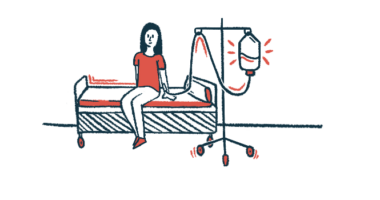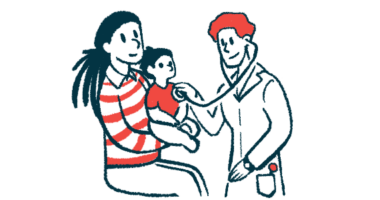Cold Agglutinin Disease and Advocacy

If you or a family member has cold agglutinin disease (CAD), you may be interested in getting involved with health advocacy efforts, which promote health and access to care.
What is CAD?
CAD is a rare autoimmune disorder in which exposure to cold temperatures, those between 32 to 50 F (0 and 10 C), causes autoantibodies called cold agglutinins to bind tightly to red blood cells. This binding induces the lysis (disintegration) of red blood cells and results in anemia.
The disease commonly affects adults of middle age and older. It may manifest as a primary or secondary disease. In primary CAD the underlying cause of the disease is not known. Secondary CAD typically develops due to bacterial, viral, or parasitic infections. Certain types of cancer or other autoimmune diseases, like systemic lupus erythematosus, may also lead to secondary CAD.
Health advocacy
The chief goals of health advocacy are to support and promote patients’ healthcare rights, improve the health and well-being of a patient community, and advance policy initiatives that underscore safe, available, and quality care.
Patient-centered care, safe and accessible medical systems, and greater patient input in healthcare delivery and design are overarching health advocacy goals.
With regard to policy, advocates identify emerging public health issues that need to be addressed. They also collect data on current practices related to public health, monitor relevant legislation, and provide feedback on how certain issues affect communities. Advocates can also help to guide health policy reforms.
Advocates may act within organizations. These could be public health associations or patient groups. Advocacy is typically carried out using multimedia platforms and via political lobbying and community mobilization.
CAD advocacy groups
The Cold Agglutinin Disease Foundation is an advocacy organization that aims to provide information, support, and encouragement to patients and their families. It also offers suggestions on handling everyday situations, provides detailed information on the disease, and gives updates on therapy development.
Advocacy groups such as the American Autoimmune & Related Disease Association can also be a great resource. It can help you in finding a doctor experienced in treating people with CAD. It can also provide information about new treatments in development, and connect you with other patients. The organization serves as a national advocate for people affected by autoimmune disease.
Advocacy groups are also good sources of information about clinical trials, and help to connect patients with study organizers.
NORD
The National Organization for Rare Disorders (NORD) is a nonprofit umbrella patient advocacy organization in the U.S. It works on behalf of people with rare diseases, including CAD, and the groups that serve them.
In addition to organizing the U.S. portion of Rare Disease Day, NORD has advocated for healthcare services such as telehealth, or remote healthcare via telecommunications, which can help people get access to healthcare.
Through an initiative that seeks to establish a Rare Disease Advisory Council in every U.S. state, NORD is also working to empower and equip members of the rare disease community to engage state leaders in matters of importance to patients and their families.
NORD’s “RareLaunch” training program hosted virtual workshops in 2020 aimed at empowering leaders — including caregivers, patients, and advocates — to start nonprofit organizations and research programs to help rare disease patients.
NORD also helps to equip other advocates, as it did early this month with the release of its sixth “State Report Card” on newborn screening and other policy issues critical to rare disease patients. Advocates, along with patients and lawmakers, can use the information as a tool to help the rare disease community.
Eurordis is a similar advocacy group working for rare disease communities across Europe, and the organizer of Rare Disease Day.
Other efforts
Rare Disease Week on Capitol Hill — July 19–22 this year — brings together rare disease community members from across the U.S. Participants learn about federal legislative issues, meet other advocates, and share their personal stories with legislators.
Discussions among scientists and patient advocacy groups about concerns of CAD and other patients regarding the current pandemic prompted a recent Rare Diseases Clinical Research Network survey online.
The federal government-run Rare Diseases Registry Program, called RaDaR, seeks to help patient advocacy groups with limited resources produce their own disease registries. Such registries are important in understanding disease development and characteristics.
To advance understanding of CAD and better support patients worldwide, Sanofi Genzyme has launched a global registry. The CADENCE (cold agglutinin disease real world evidence) registry is the first major prospective data repository for CAD patients.
Last updated: Feb. 11, 2021
***
Cold Agglutinin Disease News is strictly a news and information website about the disease. It does not provide medical advice, diagnosis, or treatment. This content is not intended to be a substitute for professional medical advice, diagnosis, or treatment. Always seek the advice of your physician or other qualified health provider with any questions you may have regarding a medical condition. Never disregard professional medical advice or delay in seeking it because of something you have read on this website.






